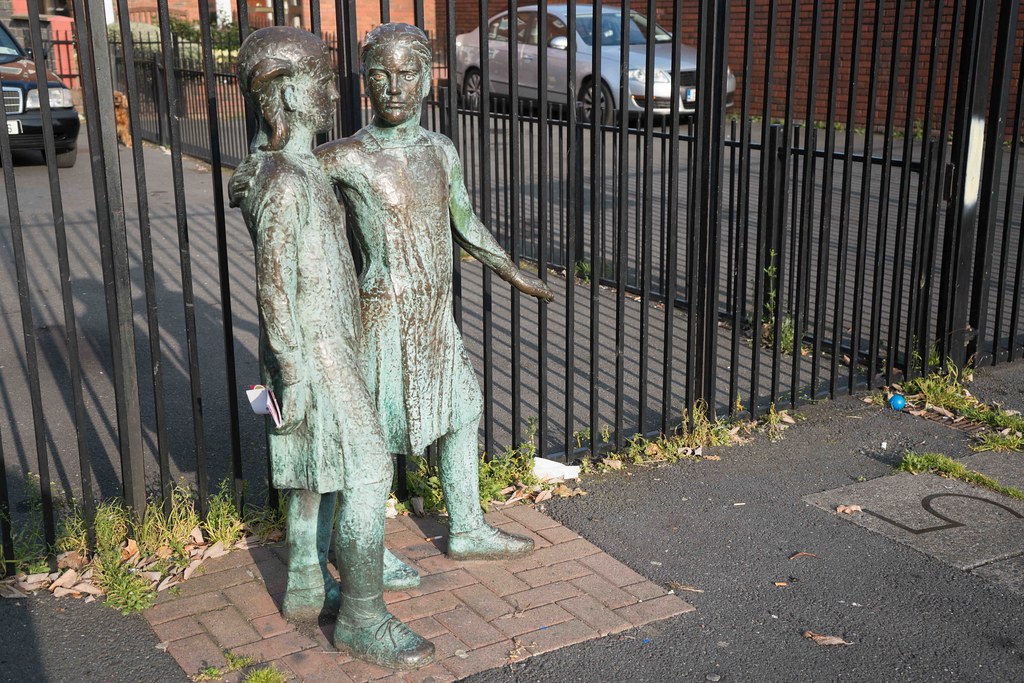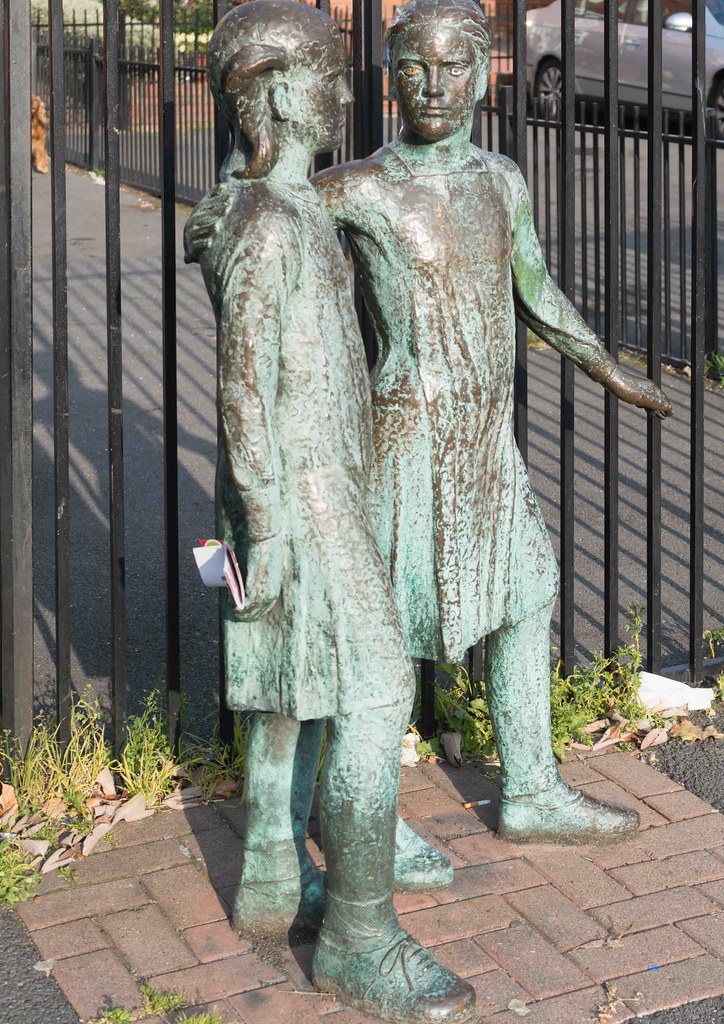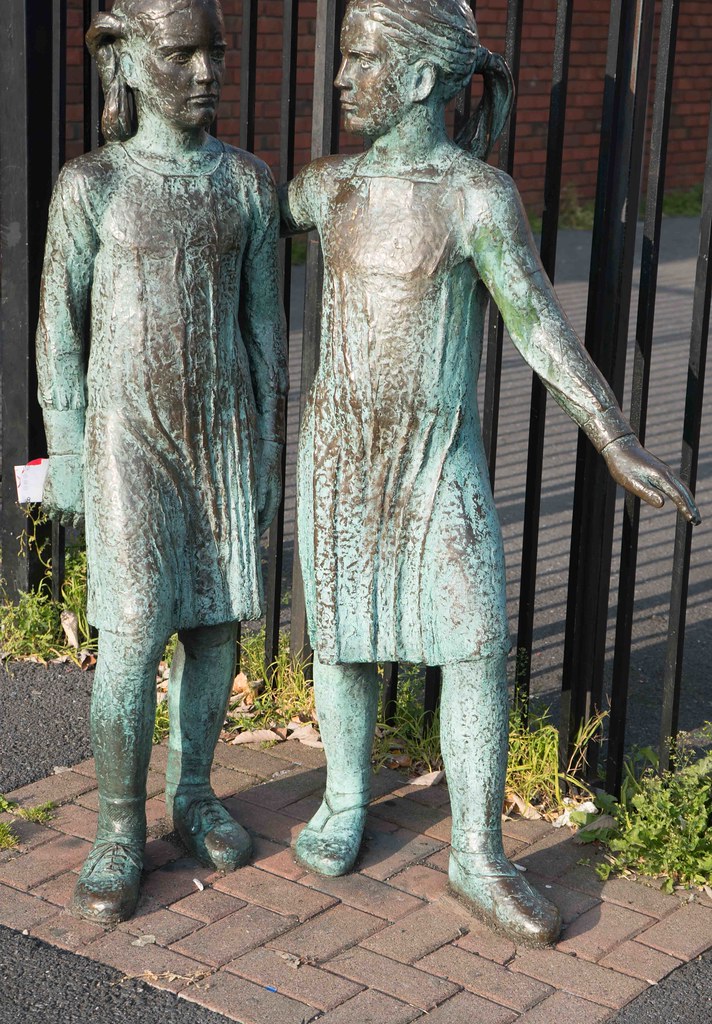
Custom Search
THE GREEN MENU OPTIONS ARE MOBILE FRIENDLY AND ARE FASTER SO THEY ARE RECOMMENDED. THE RED MENU OPTIONS ARE SOMEWHAT SLOWER DEPENDING ON YOUR DEVICE OR BROWSER AND ARE MORE SUITABLE FOR DESKTOPS AND LAPTOPS. THE BLUE OPTIONS ARE PAGE LINKS AND WILL BE PHASED OUT GOING FORWARD
Beds 1993 Bronze By Sculptor Fred Conlon
I knew that this art installation existed but until today I had failed to find it. One problem was that I believed that it was named ’Two Children’ or ‘Two Girls’. In fact it is officially know as “Beds 1993”.
This bronze sculpture was commissioned by Dublin Corporation. It is set on the pavement beside ‘hop-scotch’ squares, indicating they are waiting to play. In Dublin city centre the word for for hopscotch was ‘Beds’. Apparently the game was also called “beds” in Glasgow.
Beds consisted of chalk lines that formed boxes and were numbered from 1 to 8.
Unfortunately I did not notice the ‘beds’ element of the installation when I photographed the sculpture.
I will return at a later date and try to get more complete images.
This bronze sculpture was commissioned by Dublin Corporation. It is set on the pavement beside ‘hop-scotch’ squares, indicating they are waiting to play. In Dublin city centre the word for for hopscotch was ‘Beds’. Apparently the game was also called “beds” in Glasgow.
Beds consisted of chalk lines that formed boxes and were numbered from 1 to 8.
Unfortunately I did not notice the ‘beds’ element of the installation when I photographed the sculpture.
I will return at a later date and try to get more complete images.
LOADING
Fred Conlon (1943–2005) was an Irish sculptor.
Born in Killeenduff, Easky, County Sligo, where he was schooled, Conlon won a five year scholarship to the National College of Art and Design in 1960. Domhnail O'Murchadha, assistant Professor of Sculpture, encouraged him to complete a Sculpture Diploma. He then spent a year obtaining an Art Teachers Certificate and became a scupluture Associate of the College, where he stayed until 1972 apart from eighteen months as Art Teacher in Navan Vocational School.
In 1972 Conlon returned to Sligo to teach at the Sligo Vocational School for a year before becoming a Lecturer at the Sligo Regional Technical College (now Sligo Institute of Technology), where he helped to develop a diploma course in Art. For the next sixteen years he lectured in sculpture and drawing there until his early retirement 1989.
He worked full-time as a professional sculptor until early 2004 when a brain tumour (Glioma) was diagnosed. Although some 80% of the tumour was removed, Conlon was physically incapacitated and required extensive care for the remaining year of his life. During that year he worked on a video installation entitled Become.
Conlon's works include Millennium Garden Sculpture at Lucan Community College. He worked in stone, creating large abstract forms.
He exhibited with Independent Artists, Oireachtas, the Royal Hibernian Academy and Sculpture in context.


